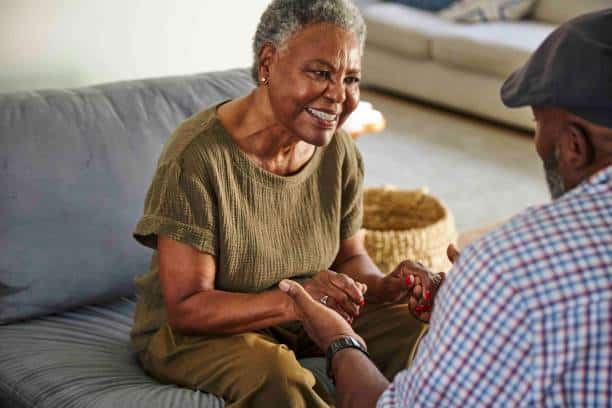
Chances are, you have a friend, coworker, or relative who is currently caring for a loved one with Alzheimer’s. With over six million Americans living with the disease and diagnoses rising steadily every year, especially among younger individuals, Alzheimer’s is no longer something only associated with advanced age. More and more, families are facing this heartbreaking diagnosis earlier than they ever expected.
With statistics that staggering, it’s only natural to find yourself observing your parents, grandparents, or older loved ones a little more closely, wondering if subtle behavioral changes might be signs of something more serious.
If you find yourself in that position, here are some helpful first steps that may guide you in navigating this difficult and emotional path.
You May Also Like
1. The First Important Step: Seek a Professional Diagnosis
One of the most important things to understand early on is this: an early diagnosis can make a world of difference.
While Alzheimer’s disease currently has no cure, early detection can help slow the progression of symptoms, maximize quality time with loved ones, and allow the person diagnosed to be involved in their own care planning. In some cases, medication or lifestyle adjustments can help maintain cognitive function for a longer period.
It’s also crucial to know that not all forms of memory loss are the same, and not all are caused by Alzheimer’s. There are multiple types of dementia—vascular, Lewy body, frontotemporal, and others—and each has its own set of symptoms and treatment considerations. That’s why it’s absolutely essential to get a professional assessment from a neurologist or a memory care specialist rather than making assumptions or relying on Google searches.
You May Also Like
2. Separate Fear From Fact
When it comes to memory loss or changes in behavior, it’s easy to panic—but it’s just as easy to dismiss signs that shouldn’t be ignored.
For example:
-
Losing keys or forgetting where you put your glasses: Common, even among healthy individuals.
-
Losing your way on a familiar route home: Not so common and potentially a red flag.
-
Retelling a favorite family story at gatherings: Endearing, but normal.
-
Repeating the same question or sentence multiple times in a single conversation: Something to bring up with a doctor.
Similarly, personality changes can be tricky to assess. An aging parent becoming a bit more irritable or impatient may not be cause for alarm—it might just be the result of stress, fatigue, or unrelated health concerns. But when those changes escalate—such as sudden paranoia or irrational accusations (e.g., accusing loved ones of stealing)—it may signal the need for a medical evaluation.
You should also take note of practical behavior changes. Forgetting how to use common household items, for example, is not part of normal aging. If mom starts putting the TV remote in the fridge or dad seems confused about how to operate the thermostat, these could be signs of deeper cognitive impairment. These moments might seem humorous or confusing at first, but they often reflect serious underlying changes in brain function.
RELATED: Is it Alzheimer’s or Forgetfulness? 5 Signs to Tell

3. Patience. Patience. Patience.
Perhaps the hardest part of watching a loved one go through the early stages of Alzheimer’s is not the forgetfulness—it’s the emotional shift. The parent who once handled life with grace and ease may now become agitated or resistant. Tasks that once took minutes—bathing, dressing, or even eating—may now cause daily frustration, for both of you.
It’s heartbreaking to see a formerly composed parent become angry, confused, or even belligerent. The same parent who taught you kindness and compassion might suddenly lash out in fear or frustration. In those moments, it’s important to remind yourself that it’s the disease talking, not the person.
While easier said than done, try not to take hurtful words or unusual behavior personally. Alzheimer’s can disrupt emotions and self-awareness, leading to accusations, anger, or even fear of the people closest to them.
If you are in this caregiving role, give yourself grace too. Patience isn’t just for them—it’s also something you must extend to yourself.
4. Start the Conversation Early
If you have concerns about a loved one’s cognitive health, it’s better to start the conversation sooner rather than later. Choose a time when everyone is calm, and approach the topic with love, not fear.
You might say:
-
“I’ve noticed you’ve been forgetting a few things lately, and I just want to make sure everything’s okay.”
-
“Would you be open to talking to a doctor together, just for peace of mind?”
While your loved one might resist or get defensive, staying calm and supportive can help them feel less frightened. Often, people with early Alzheimer’s are aware that something is wrong but may be too scared or embarrassed to bring it up themselves.
5. Build a Support System
Finally, whether you’re just starting to suspect a loved one has Alzheimer’s or you’ve already begun the diagnostic journey, you don’t have to do it alone.
Reach out to support groups, both local and online. The Alzheimer’s Association offers a wealth of resources, including local chapters, helplines, and educational materials. Connect with other caregivers who can share their own experiences and offer advice, empathy, and encouragement.
And don’t forget to take care of yourself. Your own health and well-being are critical to being able to support someone else. Set boundaries, ask for help when you need it, and find ways to recharge emotionally and mentally.
RELATED: 3 Ways to Make Your Home Safer for Loved Ones With Alzheimer’s
In Closing
No one ever wants to imagine their parent or partner facing Alzheimer’s. But with early action, compassion, and the right support, it is possible to meet the challenge with strength and grace. Start by separating fear from fact, having the hard conversations, and remembering—above all—that love, patience, and presence will always matter most.









